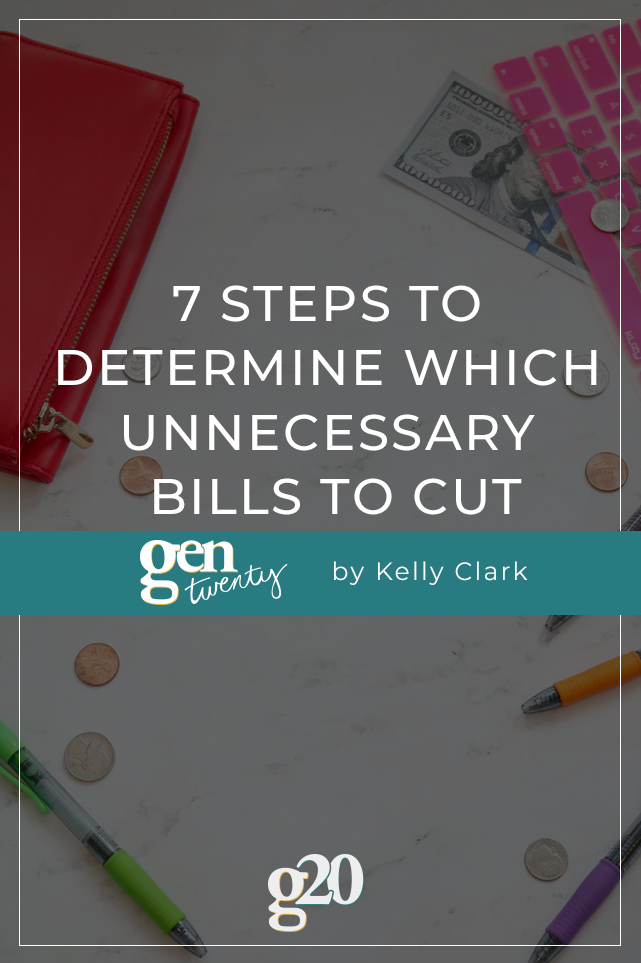
There are some times in life that are harder than others, especially where our finances are concerned. When you are going through something hard, or even a major life change, bills are the last thing we want to think about. However, oftentimes it’s one of the first things we need to think about because you can determine which unnecessary bills to cut.
It’s in these times that you need to spend some time reflecting on your bills and determining which ones are necessities. I had to do that at the beginning of last year when I found myself unemployed for a few months, right at the start of the pandemic here in the United States. It was a humbling and eye-opening process that I went through.
Maybe you are preparing to buy a car or going to grad school, so you are trying to save as much money as possible. You may be finding yourself like I was, unemployed and unsure of when a job opportunity will come your way. No matter where you find yourself, you can use this post to guide you in determining which unnecessary bills to cut.
7 Steps To Determine Which Unnecessary Bills To Cut
Step 1: Write Down Your Bill Due Dates
If you don’t already have a place where you have all your due dates, this is the time to write them down. What I like to do occasionally is go to my bank statements, to the previous month, and look for any recurring payments. This helps me keep my list as up-to-date as possible.
You’ll want to be sure to write the bill, the amount, and the day it’s due. Get into the habit of doing this and you’ll feel more organized, and there will be fewer surprises when you check your bank account.
Step 2: Figure Out When You Have Any Type Of Income Coming In
Do you get paid weekly, every other week, or monthly? Write down the dates you get paid, and how much you are expecting. Leave room underneath, because you’ll be putting your bills below them.
If your income is irregular right now, try to figure out when you’ll have income coming in, write down what you have in savings, or find ways you can make a little extra money.
Step 3: Put Your Bills Into A List Under Each Paycheck You Have
Now we are putting steps one and two together. Put the bills that fall under each paycheck under the place you have that paycheck written. If you get paid every other week, and have a paycheck coming on the 7th of the month, you’ll want to write down any bills due from the 7th to the 20th.
Step 4: Cut Your Bills Part 1
Next, it’s time to reflect and get honest with ourselves. What can we do without? If it’s not a need it has to get cut if you are either trying to save money or have minimal money coming in.
That means you have to cancel services like Amazon Prime, Netflix, Spotify Premium, etc. If any of them have free services, like Spotify, you don’t have to completely cancel them, just downgrade. This can be hard to do if you use these services often.
To get through it you have to fix your focus on why you have to do it. Also, realize that you aren’t saying goodbye to things like Netflix forever. You can resubscribe when you are in a better place financially.
Step 5: Cut Your Bills Part 2
Now that you only have your needed bills, reassess to see where you’re at. If it still doesn’t seem possible, it’s time to make some calls. Can you negotiate a lower payment, or set-up a solution to pay what you can now and the rest later?
Most businesses will work with you. You may not be able to reduce all your bills, but some is better than none, right?
Step 6: Rewrite Your Lists & Reflect
After you have canceled and negotiated all that you could, write a new list of the paychecks and new amounts like you did in step three. What are your new bill amounts? Are you able to make them work with the income you have coming in?
Spend some time reflecting on all that you have accomplished by doing this. How much money have you saved?
Step 7: Look At Your Spending
If you still feel unsettled about how much money is coming out of your bank account. It’s time to address your spending habits.
Doing this process ahead of time saved me from stressing more than I needed to. I would advise that you get ahead of determining which unnecessary bills to cut as much as you can.
Let me know if this process helped you in any way, or what you thought about this post, in the comments below.
